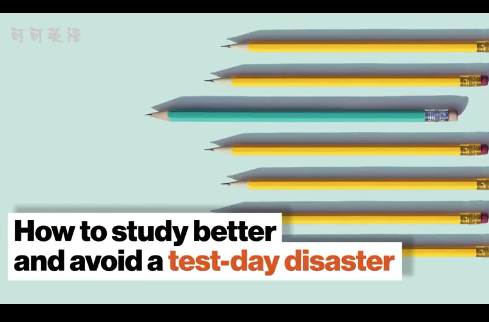When we teach someone something, we want them to feel good about their learning.
我们在教别人东西的时候 总想让他们能学得开心
And one way to help a learner speed up their apparent progress is to sometimes give them little hints.
帮助学习者快速进步的一种方法就是时不时给他们点小提示
The problem is, sometimes hint-giving can actually undermine the long-term development of knowledge.
但问题是 提供线索有时候会破坏知识的长远发展
There's a really interesting study that demonstrates how this works.
有一项很有意思的研究证明了这一点
It was done on two individuals named Oberon and MacDuff, who happened to be rhesus macaques,
研究对象是两个叫做Oberon和MacDuff的个体 它们是恒河猴
monkeys, who were trained to memorize lists in order --
猴子 专门被训练来按顺序记东西
lists of images that they had to pick in order off of a screen.
它们得按顺序从屏幕上选出一系列图片
The images could be tulips, a school of fish, Halle Berry, et cetera.
这些图片可能是郁金香 一群鱼 哈利·贝瑞等等
And they had trials where they were training to see the order of these pictures.
人们做了实验 训练猴子去看这些图片的顺序
But the trials came in different varieties.
但实验类型有所不同

In certain cases, Oberon and MacDuff automatically got hints on the order of the images
在某些实验中 Oberon和MacDuff会自动得到关于图片顺序的提示
so they knew what to pick next.
好让它们知道接下来该选什么
In other cases, hints were always available but they didn't have to take them.
在另外的实验中 它们可以获得提示 但并不是必须的
But they could when they wanted to.
但只要它们想要提示 就能得到
And in another case, hints were available about half the time.
还有一些实验中 有一半的时间是可以得到提示的
And in a final instance, for a final set of lists, there were no hints whatsoever.
在最后一种实验中 最后的一组列表没有任何提示
And so over several days of training and hundreds of trials on each of these different sets of lists,
经过几天的训练和对不同列表的数百次实验后
Oberon and MacDuff started performing well on the lists where they got hints.
Oberon和MacDuff开始在有提示的情况下表现很好
On the ones where they didn't get hints, not as well.
但在没有提示的情况下 它们的表现就差一些了
Then they took a break and came back for test day.
然后让它们休息几天 再回来接受测试
No more hints on test day whatsoever, and it was a performance disaster.
测试的那天没有任何提示 结果简直是场灾难
Oberon and MacDuff got almost nothing right from the lists where they were given hints.
在有提示的列表中 Oberon和MacDuff几乎全部答错
The more hints they were given in training, the worse they did on test day.
训练时给的提示越多 测试的时候它们的表现就越差
And for the lists where they got no hints,
而在那些没有给过提示的列表中
all of a sudden Oberon got about 3/4 of them right and MacDuff,
Oberon出乎意料地答对了四分之三 而MacDuff
who was generally not as good, got about half of them right.
它整体表现要差一点 答对了近乎一半
And this demonstrates something well known about human learning, actually, called the generation effect.
这证明了人类学习中我们所熟知的一点 那就是生成效应
The generation effect means sort of what it sounds like;
顾名思义 生成效应指的就是生成效果
the effort of generating an answer actually primes your brain for learning.
生成答案这个过程其实会让你的大脑做好学习准备
So the kind of testing that Oberon and MacDuff were doing, when they had lists with no hints
所以Oberon和MacDuff所做的那种测试 它们在选没有提示的列表的时候
even though they were struggling, it was forcing them to attempt to generate an answer.
即便举步维艰 但它们也被迫想出了自己的答案
And even when they were wrong, that primes your brain to then retain the knowledge.
即使它们答错了 也能让你的大脑记住那个知识点
Where in the cases where they were given hints,
但在给了提示的情况下
they didn't have that same kind of priming, that same kind of work, to generate a correct answer.
它们没有这种准备过程 没有付出努力去想出正确答案
So the lesson that comes from this area of cognitive psychology
所以这一认知心理学领域的研究告诉我们
is that really you should be testing yourself before you're ready,
你应该在自己准备好之前就测试自己
because that's how you prime your brain for better learning.
这样你的大脑才能为更好地学习做好准备
Or to quote the cognitive psychologist Nate Cornell,
或者引用认知心理学家Nate Cornell的话
who was involved in the monkey study but usually studies cognition in humans:
他也参与了这项关于猴子的研究 但他平时研究的是人类认知:
Frustration and difficulty is not a sign that you aren't learning, but ease is.
沮丧和困难并不是你学不进去的标志 轻松才是











